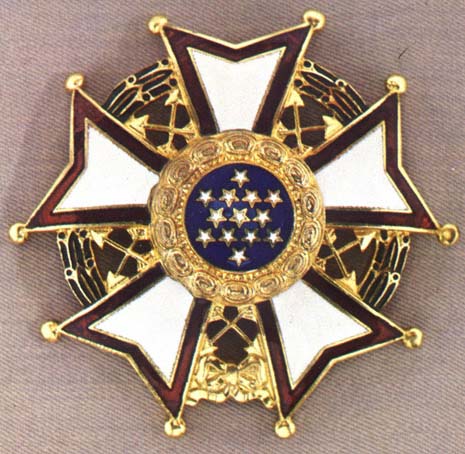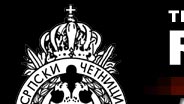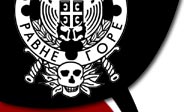|
Introduction
In seeking
to most clearly illustrate the history of the Chetnik movement,
no source is perhaps as useful and as historically indicative
as are the wartime records of General Mihailovic (1893-1946).
Though the future will present many more opportunities to
explore the history of General Mihailovic and the history
of his movement in World War II, it is crucial to highlight
his prophetic understanding of what he saw would happen to
the Serbian people in the event of a Communist victory. This
vision he presented to his people in September of 1944, a
"momento mori" for himself, his movement, and for
the future of Serbia. His declaration, in essence, provides
us with the most impacting and also, most sobering witness
of the experiences of Serbs (as is commonly said "on
both sides of the Drina") during World War II.
In the
Post World War II years, the wartime enemies of Mihailovic's
movement created an overly simplistic picture of preceding
events. Participants in wartime dramas were clearly labeled
either victors or traitors, with Yugoslav dictator Tito's
Communist regime not only dominating socio-economic and politic
events, but through such control, also distorting proceeding
historical records of the events of 1941-1945. At the end
of the war, General Mihailovic was declared an "enemy
of the people," sentenced, and consequently, vanished
three days after his trial. The fact that the regime of the
time found it necessary to undertake such an action provides
one of the most trying testaments to the moral sway he and
his movement carried with his people.
Today
and more than fifty years later, new investigations into the
wartime drama within Yugoslavia-based on the publications
and declarations of the Ravna Gora Movement-provide us with
a clearer picture of past events not only within the Movement
itself, but also within World War II Yugoslavia. This picture,
which was always clearer to those in the Serbian Diaspora,
has finally begun to enter into official history and into
the land of our forefathers.
Arrival
at Ravna Gora-May, 1941
Dragoljub
(Draza) Mihailovic entered the battle proceeding the April
German invasion of Yugoslavia as head of the Operational Division
of the Yugoslav Second Army, a unit which had seen heavy combat
in the mountains of central Bosnia. In the region around Doboj,
the then Colonel Mihailovic saw his last service in regular
combat, ending a campaign which had begun with his country's
invasion by the Third Reich and with its first battles around
Kiseljak in Bosnia. Yet, that last day of the campaign was
a turning point in the career of Colonel Mihailovic. It was
on that somber day that he decided to split from the column
of the Second Army and head for the Drina River. He recorded
the events of that day like this: "I did not want to
capitulate and refused orders to negotiate with the Germans.
I came to the idea to head for the Drina because I was convinced
that it was there that I could find a front."
Mihailovic was then engulfed by frustration and regret, feelings
which arose from previous years' misunderstandings and the
fact that through those years, he was in the right. Coincidentally,
Mihailovic had, in the pre-war years, pushed for a military
re-organization within the Royal Military, one which focused
on creating mobile military units based on the fighting methods
of Serbia's traditional guerrilla fighters-the Chetniks. At
this point in the war (at the end of the German campaign),
his own unit, in conjunction with the 41st infantry brigade,
had become just that sort of force. On the mountain Ravna
Gora, Mihailovic set up his first headquarters and as a result,
created what would become a symbol for the Chetnik Movement
in World War II and what would give the Movement its name.
In fact, the common people were already calling these fighters
"the chetniks of Draza Mihailovic."
So, upon his arrival on Ravna Gora in May of 1941, Mihailovic
had decided to create a movement of resistance. Immediately,
this decision proved itself momentous. With his proclamation,
Mihailovic had lifted the banner of freedom in defiance of
the enemies of the Serbian people. Soon after, the Reich's
commander in Southeastern Europe, Field Marshal List, requested
reinforcements in the number of numerous divisions and special
expeditions moved to begin reprisals against the uprising,
that is to say, against Draza's Chetniks.
The
Formation of An Organized Resistance
In the
coming weeks, Colonel Dragoljub "Draza" Mihailovic's
headquarters saw the constant arrival of new recruits. The
vast majority of the newcomers were disillusioned yet patriotic
officers who had heard of the new resistance and who had been
unable to make peace with the tragedy of the April invasion
and subsequent attempts at subjugation. In addition, a large
number of these men who were now flocking to Ravna Gora had
been pupils of Mihailovic's while he taught as a Military
Academy instructor and also had fought at his side in the
previous world war. However, Mihailovic decided to only hold
onto a small number of these new recruits, mainly because
he wanted the majority of them to spread word of the uprising
to their own hometowns and villages and organize their own
Chetnik units. Soon after, the villages around Ravna Gora
became an organizational zone in which Mihailovic's men could
organize themselves and solidify the foundations of future
resistance.
In this
initial phase, a basis was created for future military formations:
first operational squads, then battalions, and eventually,
brigades and corps. As in all standard guerilla campaigns,
those who were sent to certain operational zones were given
basic instructions and organized the common people. Yet, that
same year also saw the creation of the political wing of the
Movement, the Central National Committee. The goal of this
committee was to organize the Serbs' intellectuals and political
cadre, as well as their experienced public officials. There
were also regional committees, such as those in Montenegro,
Herzegovina, and the Committee of Serbian Dalmatia, which
was organized in Split by Ilija Trifunovic-Bircanin.
It is
vital to point out that throughout this process, however,
General Mihailovic remained steadfast in his belief that he
was a soldier of his people and that he had no right to conduct
any political actions that ran contrary to their will.
From
Conflict to Civil War
In order
to combat the growing Communist threat, Army General Milan
Nedic organized the "Serbian Government of Salvation"
on August 29, 1941. Nedic was well aware of how Mihailovic,
Major Misic, and others viewed this threat, that is to say
as a divisive danger to the Serbian people that the Germans
were all too eager to take advantage of. General Nedic, in
fact, explicitly underlined these aspects of the civil crisis
and they formed the foundation of his acceptance of political
power. In essence, the danger of the Communist threat in Serbia
revolved around the fact that it had less to do with the liberation
of Yugoslavia (even less with the liberation of the Serbian
people) and more to do with the imposition of Soviet Communism
upon the two. From the beginning of the uprising and with
the eventual arrival of Nedic, Communist forces took advantage
of the situation and began reprisals against Draza's Chetniks
in Serbia, with these operations eventually being extended
to other areas where uprisings had taken place against the
Germans and their fascist collaborators, the Ustashe.
Once
Mihailovic's Chetniks had swept these Communist partisans
out of Serbia, these exiles proceeded to extend their operations
into Montenegro, Herzegovina, and Eastern Bosnia, involving
their Communist brethren in these regions in their methods
and destroying the last unified units of resistance fighters.
In this fashion, Yugoslavia's Communists squashed the last
opportunity for all Serbian fighting elements to fight under
a unified banner and helped create the civil war that emerged
from these crises.
Yet,
despite Communist reprisals, Draza's rebel Chetniks managed
to organize a front against German forces. After heavy fighting,
they forced the Germans out of Cacak and its surrounding villages,
while a day earlier, units from Takovo (under the command
of Captain Vukovic) attacked the German garrison in Gornji
Milanovac and forced the surrender of the several units from
the 920th battalion. Strategically, it is important to point
out that these actions were undertaken at a time when the
German war machine was at its zenith and was rolling through
Russia and North Africa. Nonetheless, Chetnik forces proceeded
to liberate Valjevo and Kraljevo, with the latter battle seeing
the first use of artillery captured from the Germans.
The
Germans Against Mihailovic
At
a conference with his highest-ranking commanders on the 1st
of December, 1941, Colonel Mihailovic gave his newest orders
for further attacks against the Germans and Communists. However,
a few days after this conference, nearby German units began
a heavy, concerted assault on Ravna Gora. "Operation
Mihailovic" was meant to destroy all guerilla units within
a radius of 120 kilometers of the mountain and to begin a
general dismantling of all Chetnik units in the region. Many
of his closest associates, among them Major Aleksandar Misic,
were captured and subsequently shot. Nevertheless, the offensive
did not accomplish its goal and Draza's movement essentially
remained intact.
In
New Surroundings
After
the German Ravna Gora offensive, Mihailovic's forces continued
with their declared desire for anti-fascist resistance. The
winter of 1941-42 proved a difficult one though, and the survival
of the resistance was put to its strongest test yet. During
that winter, German squads carried out constant reprisals
against Chetnik forces and the Serbian population that had
supported them. After the failure of the German offensive
on Ravna Gora, Mihailovic and his associates were often on
the move. Due to constant German attack, Mihailovic was forced
to move from village to village and from mountain to mountain
on a regular basis.
One of
the more important assemblies of the Ravna Gora Movement during
the war was the Saint Sava's Day assembly that took place
from January 25 to January 28, 1944. The movement's program
for the internal organization of Yugoslavia was accepted at
this assembly. The assembly was a reaction to the recent events
in London, including events in the government in exile and
conversations with Churchill and other British officials.
These conversations all led to one issue: Eliminating Mihailovic
and appeasing the Soviets, who had already penetrated west
with the Red Army. The British Premier explicitly requested
that Puric's government be replaced, which would take Mihailovic
out of the picture for Britain and Yugoslavia. That is eventually
what took place. Puric's government was dismissed on June
1, 1944 and Dr. Ivan Subasic was named the new leader. This
meant that Mihailovic was finally removed from his ministerial
position. Ironically, the main protagonist of the anti-communist
resistance was now out of the picture. The Central National
Committee, which met in July, judged this form of government
to be untrustworthy and demanded that free influence over
the area be upheld. All of these judgments were to no avail.
While
the attacks continued, Mihailovic was on Durmitor, which was
free at the time, moving to Kalinovik so that by the end of
summer 1942, he had created his own general staff headquarters
near Kolasin. With the arrival of Mihailovic on Sinjajevin,
the western and eastern sections of Crna Gora become the center
from which the Ravna Gora Movement continued its actions in
the fight for freedom. During the largest German action against
Mihailovic, the government in London gave him the rank of
Brigadier General on December 7, 1942. One month later, he
was pronounced General and soon after, he became Lieutenant
General.
As the
most difficult battles with the Partisans were occurring,
Mihailovic gave an order on September 1, 1944 whose main objective
was to deal with the Communists because "they were preparing
to impose their own slavery and bloody tyranny on us."
Mihailovic realized that the repeated infiltration of Communism
in Serbia was led by the idea of the destruction of the Serbian
people. This was confirmed by his words: "the million
that they killed with the Ustashas were not enough."
As the
most dramatic events were unfolding, Mihailovic's Chetniks
received another blow from an unexpected source. The blow
came from those for whom they were dying for, the same people
that were mentioned in songs and placed on flags. On September
12, 1944, the King gave in to Churchill's demands, unaware
of the horrible consequences this decision would have on Mihailovic,
the army, and on himself. Mihailovic removed his hat when
the stenograph of the speech from the BBC was read to him.
It was not until midnight that he once again took his hat,
took one long look at it, and kissed it before retiring for
the night.
Although
Mihailovic was very shaken by the King's speech, he felt that
"one shouldn't succumb to the influences of one act,
whose objectives lie in the war plans of our great allies."
His dedication to the monarchy and his country was greater
than that of the King's. Mihailovic adamantly insisted on
discipline since "the Ravna Gora revolution must not
be a revolution of disorder and killing, rather a revolution
of justice and freedom."
Allied
Pilots Rescued in 1944
In a
large air assault inflicted by the allied air forces from
Italy, large bombing raids took place on fuel installations
in Romania and on other strategic targets. At the request
of Tito and his Yugoslav communists, towns and other targets
in Serbia were also attacked. The sky above Serbia was covered
with traces of smoke from American quad-engine bombers. Even
though they were bombing Serbian towns, the Serbian Chetniks
still revered them as allies. A number of planes were downed
by German and Romanian anti-aircraft artillery installations.
The allied pilots were parachuting from their damaged or destroyed
aircraft over Serbia. Thankfully, over 500 of these pilots
fell into the hands of Mihailovic's Chetniks, avoiding German
internment or certain death. This took place at the expense
of the lives of many Chetniks and civilians who took part
in the rescue. After both short and long stays in the free
Ravna Gora territory, the pilots were returned to their original
units in Italy from the Pranjani Airport near Cacak.
The
End of the War
Mihailovic's
radio station, the only contact with the outside world, was
forever silenced on May 5th. At 11 o'clock on Easter, May
6, 1945, everyone stopped in his or her tracks. After a short
service, the last order given by Mihailovic was read: "Today,
we will continue with the goals that we have set for ourselves.
Our resistance and our suffering is a given right, given by
the Lord. We could lose our lives in this struggle, but our
victory is guaranteed, a victory and a blessing for those
who survive and for the last of us. Assured by your steadfastness
to endure to the end, I direct my attention to you, my dearest
fellow soldiers, and greet you with Christ is risen!"
One week
later, after being tracked by communist troops and by the
air force of the former allies, the main portion of Mihailovic's
forces were destroyed on Zelengora. Hidden from international
view, the communists didn't take prisoners amongst the Ravna
Gora fighters, who were abandoned by the West. They didn't
even have the need for such formalities. At least 9300 Mihailovic
fighters were liquidated, either before or after their capture.
It is ironic that the first individual who appeared armed
with guerilla formations in the fight against the Germans
in the spring of 1941 was now the last and only one remaining
in the forests of Serbia in 1945. Just as he was once the
first to rise in protest against the German occupation in
Europe, at the conclusion of the war, he was also the first
to protest the tyrannical establishment of the Communist regime
in Yugoslavia.
A
Few Words About Mihailovic and His Family
General
Mihailovic was a deeply religious individual. He prayed regularly,
fasted, took communion, and celebrated his patron saint day
of Saint Nikola. Mihailovic's son Vojo was at his father's
side from 1941 to the end. He was killed in 1945 at the conclusion
of the Bosnian Golgotha. Mihailovic's wife, their older son
Branko, and their daughter Gordana were repeatedly imprisoned
by the Germans, interrogated, and held as hostages. General
Mihailovic lived and perished in accord with his beliefs:
With the people until the very end.
Conclusion
During
World War II, General Mihailovic was a soldier, a commander,
and leader of his people who resisted the mightiest military
power ever known to man up until that time. Slobodan Jovanovic
wrote: "General Mihailovic fulfilled his responsibilities
as the son of the Serbian people. This is already evident
by the fact that he has not only become a historical figure,
but has become a national tradition. He was persecuted, slandered,
tortured, and fatigued during his entire lifetime. His body
was strewn into pieces and he has no marked grave, but he
continues to live in the souls of the Serbian people, where
he will remain as long as the Serbian people exist."
With
the implementation of the Communist regime, the weakening
of the Serbian National Dynasty took place in the early phases
of the system. They slowly began the destruction of spirituality
and transformed the vast territories of the Serbian people
to a "smaller" Serbia.

Legion
of Merit awarded to General Mihailovic by President Truman
with the following dedication:
Chief
Commander
General
Dragoljub Mihailovich distinguished himself in an outstanding
manner as Commander-in-Chief of the Yugoslavian Army Forces
and later as Minister of War by organizing and leading important
resistance forces against the enemy which occupied Yugoslavia,
from December 1941 to December 1944. Through the undaunted
efforts of his troops, many United States airmen were rescued
and returned safely to friendly control. General Mihailovich
and his forces, although lacking adequate supplies, and fighting
under extreme hardships, contributed materially to the allied
cause, and were instrumental in obtaining a final Allied Victory.
March
29, 1948 klklklkllklkllkllllllllllkllllkll
HARRY S. TRUMAN
|



